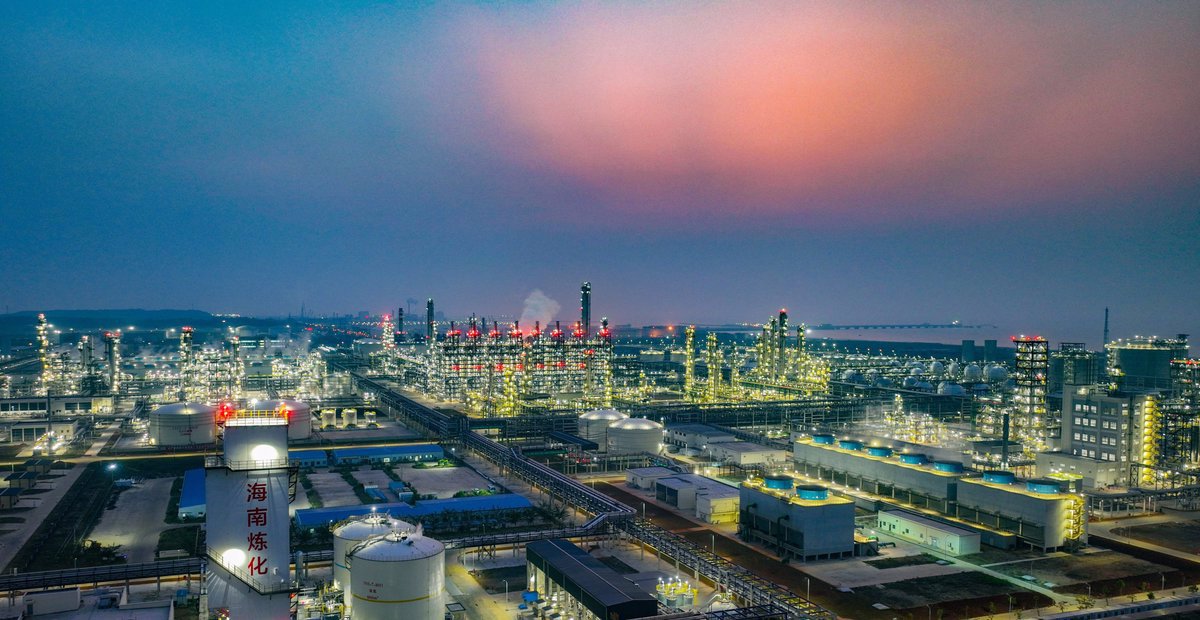Brent remains subdued amidst rising economic and oil demand concerns
Front-month ICE Brent has declined by $0.49/bbl on the day, to $84.70/bbl at 09.00 GMT.
 PHOTO: Sinopec's Hainan refinery in China. Sinopec
PHOTO: Sinopec's Hainan refinery in China. Sinopec
Upward pressure:
Global concerns over interest rate hikes and a potential global recession are exaggerated, Skylar Capital managing partner Bill Perkins told CNBC last week.
“I think there’s a lot of concern by global macro about a [global] recession happening, interest rates rising, but in a normal economic tightening cycle crude oil demand stays flat or grows. It doesn’t collapse,” he said.
Perkins said that Covid-led pandemic or housing crises were "extraordinary anomalous events" and cannot be compared with the current economic landscape. According to him, Brent could increase to $120/bbl before it becomes “self-regulating”, and the overall market outlook is "bullish" for Brent.
The next few months will be the "most bullish time" for oil demand as the summer driving season starts and refinery maintenance ends in the US, Kpler's Matt Smith told CNBC.
Downward pressure:
The fragile economic states of the US and several European countries, and uncertainty about potential recessions have kept a lid on Brent price gains. The slow pace of China's demand recovery has added to the downward pressure on Brent futures.
“Crude prices are drifting lower as most energy traders are still on the sidelines until we get a clearer picture on the global growth outlook. There have been a lot of headlines but nothing is moving oil today as prices appear content hovering above the $80 [$80/bbl] given all the supply challenges,” says OANDA senior market analyst Ed Moya.
A number of major refineries in Asia will undergo maintenance from May. Sinopec will take its Luoyang and Qingdao Refining Corp refineries offline and its Qingdao Petrochemical refinery partly offline, which means a total of 510,000 b/d of crude distillation unit (CDU) capacity is estimated to be taken offline. In Japan, Idemitsu Kosan will shut down 190,000 b/d of the CDU capacity from its Chiba IK refinery, while Fuji Oil will halt 143,000 b/d capacity from its Sodegaura refinery. Wood Mackenzie's data shows that several refineries will be closed for more than 60 days.
Refinitiv Oil Research estimates that Asian countries imported around 27.60 million b/d in March. That would be a 6.1% drop from the 29.4 million b/d imported in February, and also down from the 29.13 million b/d imported in January, Reuters reports.
By Konica Bhatt
Please get in touch with comments or additional info to news@engine.online





